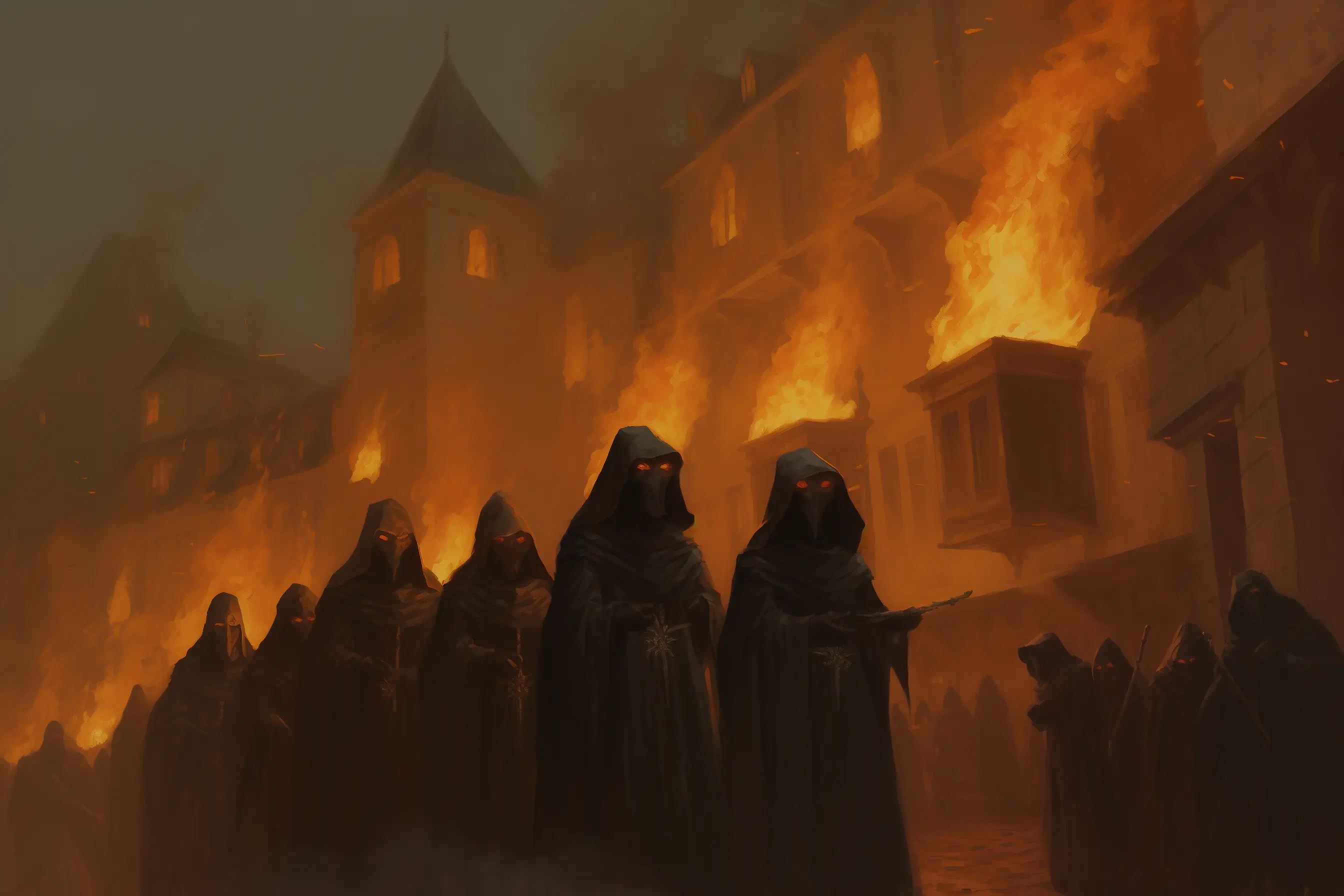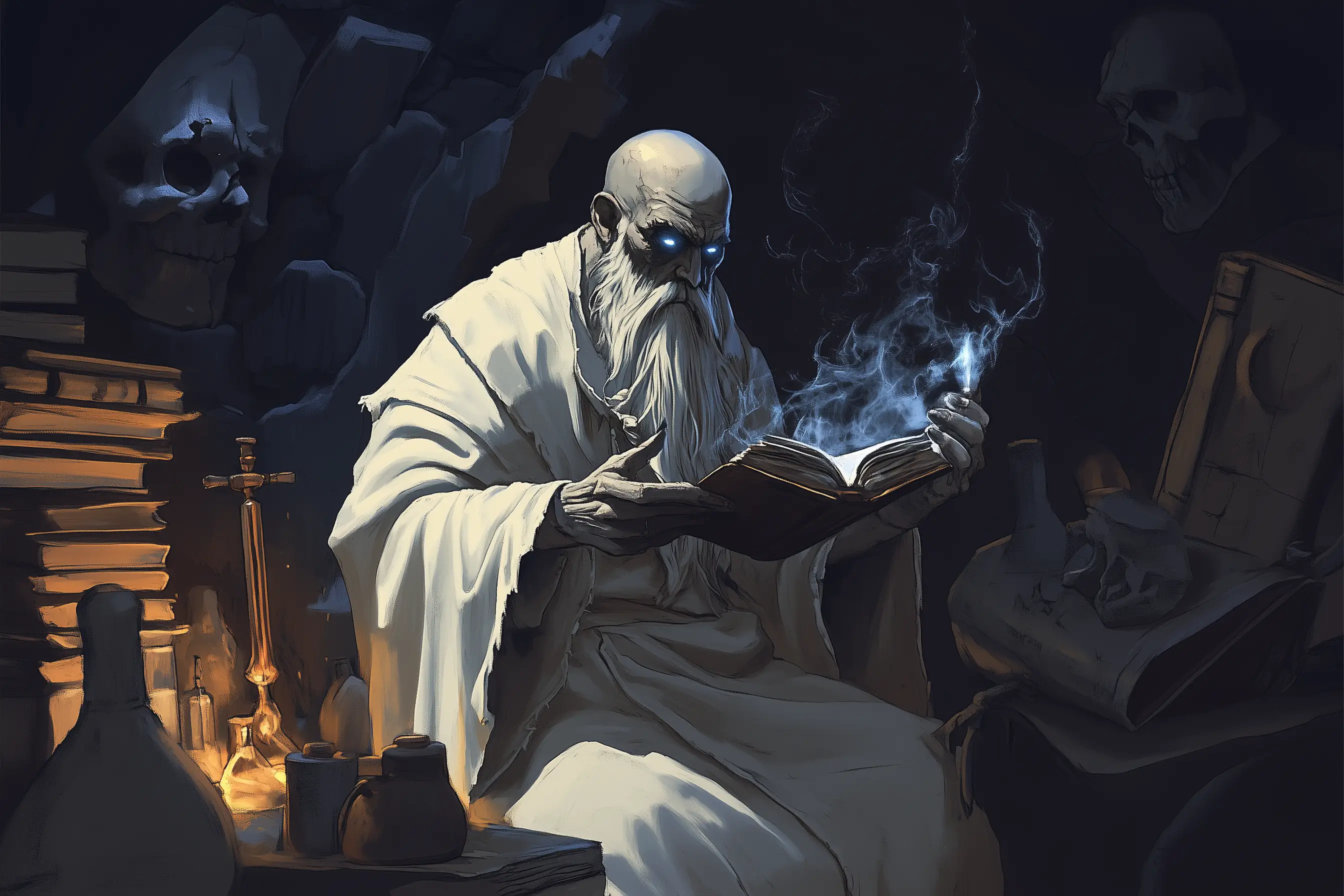Kaligard the Bone-stealer
Transcription from the Sable Codex of Karzov (4th Cycle, Year of the Blood Moon):
Kaligard, known as the Bone-stealer, is a figure whose name is whispered more than spoken aloud. A hermit and a recluse, he is known to few, and even fewer have seen him with their own eyes. His life has been one of isolation, and yet his reputation as a necromancer has reached even the members of my order. It is said that Kaligard once walked among scholars, a man of intellect and potential, before turning away from all known paths to pursue forbidden knowledge. Now, he dwells alone in a tower near the Divide, his power growing in secrecy. Kaligard’s mastery of necromancy is feared, for he defies both human and Feyn laws, raising the dead to serve him in ways that are abhorrent to the natural order.
The true scope of his necromancy is reflected in his grim title, the Bone-stealer. His magic draws from the bodies and souls of the dead, raising them as ghoulish servants who guard his tower and carry out his will. Kaligard’s tower itself has become a place of dread, where few dare to tread. It is said that his collection of Cryst-Nirithean relics, stolen from ancient burial sites, enhances his power and connects him to the deeper, older magics of the land. His possession of such relics suggests a broader ambition—one that likely involves the forgotten magics of the Old Fey. Whatever his goals, Kaligard stands as a defiant force, unchecked by the constraints of society or the Feyn.
Kaligard’s defiance of the Feyn makes him an Apostate, one who practices magic without the sanction of the Feyn. Apostates are dangerous for several reasons. First, they draw upon powers that are not theirs to command, often resulting in corrupt and unstable magic. The Feyn, who hold dominion over the balance between life and death, do not grant these powers lightly. An Apostate who seeks to control these forces without permission risks not only his own ruin but also the balance of the world itself. Kaligard’s use of necromancy—reanimating and controlling the dead—violates the natural cycle, a transgression that many believe has already twisted his soul. Finally, it is dangerous because our King, and indeed our Order, prohibits apostacy in all of its vile forms.
Apostates rarely escape the consequences of their defiance. Without the protections and structure that sanctioned Feyn magic provides, their powers are often volatile, leading them down paths of madness and destruction. Kaligard’s life is a testament to this danger; he has isolated himself from all others, consumed by his own dark pursuits. The Feyn do not ignore such transgressions forever. They see Apostasy as a direct challenge to their authority, and their retribution is both swift and harsh. Few Apostates live to stretch the borders of old age with their magic, and those that do, like Kaligard, must constantly guard against the inevitable reckoning.





Comments